Swiss vote no in sovereignty referendum
- Published
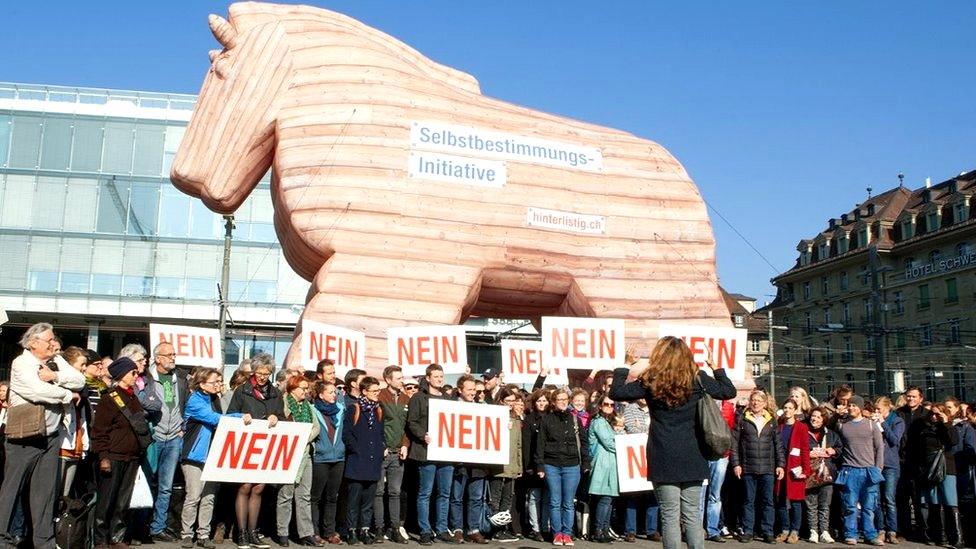
No campaigners say the proposal is a Trojan horse aimed at weakening human rights
Swiss voters have rejected a proposal to give Swiss law precedence over international law and treaties, according to results coming in from a national referendum.
Figures based on partial results give 67% against and 33% in favour, national broadcaster SRF said.
Critics said the proposal would have damaged the country's global standing.
A proposal to subsidise farmers who do not remove their cows' horns has also been rejected.
The rejection of the sovereignty proposal is a major blow for the right-wing Swiss People's Party (SVP), which put it forward, says the BBC's Imogen Foulkes in Geneva.
For years it has, with some success, taken proposals on reducing ties with the European Union, limiting immigration, or cracking down on foreign criminals to the ballot box, she says.
"It is a huge defeat," SVP Vice-President Céline Amaudruz told Swiss TV.
Some analysts are already asking whether the SVP's brand of populism - it is the largest party in parliament - has peaked.
The proposal upset almost the whole of the political spectrum and could have affected Swiss relations with the European Union and even the United Nations, our correspondent adds.
All the other big political parties in Switzerland, business leaders, and human rights groups conducted a very organised campaign of opposition to the sovereignty proposal.
The SVP argued the measure would have bolstered Switzerland's autonomy and national identity.
A yes vote would have meant Switzerland having to renegotiate thousands of treaties, including texts on human rights, the rights of the child, or even on trade.
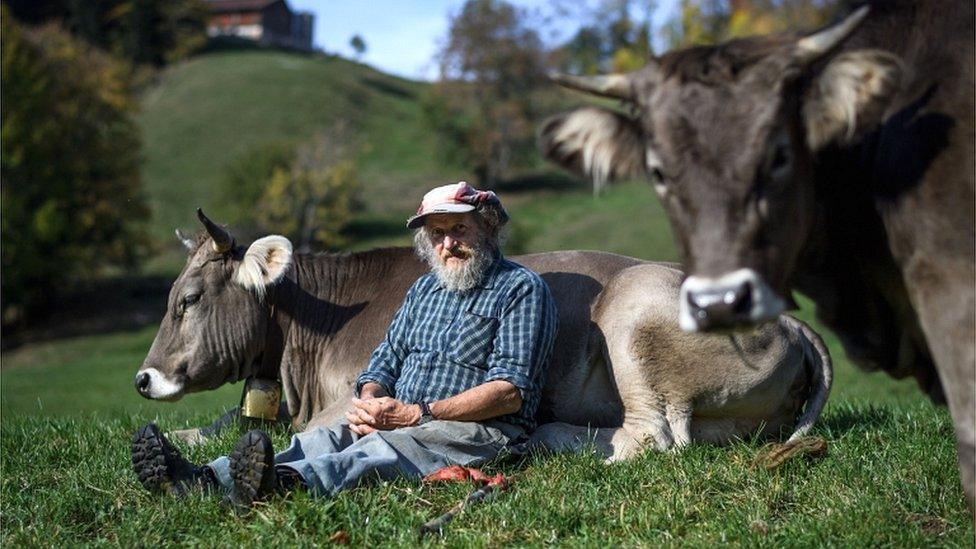
Swiss farmer Armin Capaul collected more that 100,000 signatures for people to vote on his proposal on cows' horns
The cow horn proposal was rejected by a narrower margin - 54% to 46% according to provisional results.
The farmer who singlehandedly launched the proposal spent eight years campaigning on the issue.
Armin Capaul argues that removing horns is unnatural and painful, and that the animals are much happier with them.
His proposal would have seen money going to farmers who did not dehorn their livestock.
But the federal government was opposed, citing the extra costs and arguing that farmers had to remain free to manage their livestock as they chose.
Most Swiss cows have no horns as farmers see removing them as making it easier to keep livestock and reducing injuries to humans and animals.
But animal rights advocates argue cows use their horns for scratching and communicating, among other things.
Under the Swiss system of direct democracy, a proposal needs 100,000 signatures before going to a referendum.
- Published22 November 2018
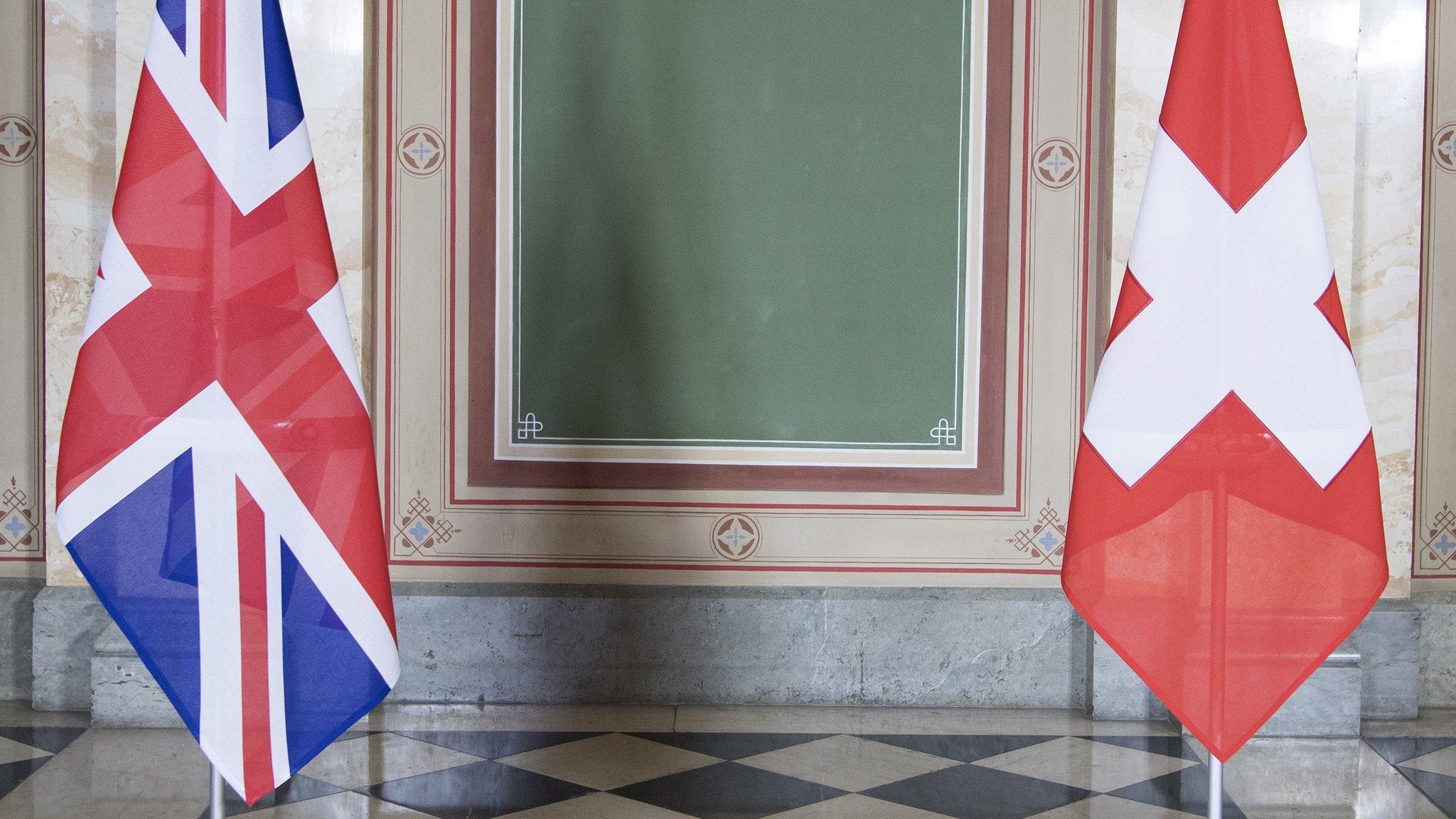
- Published23 September 2018
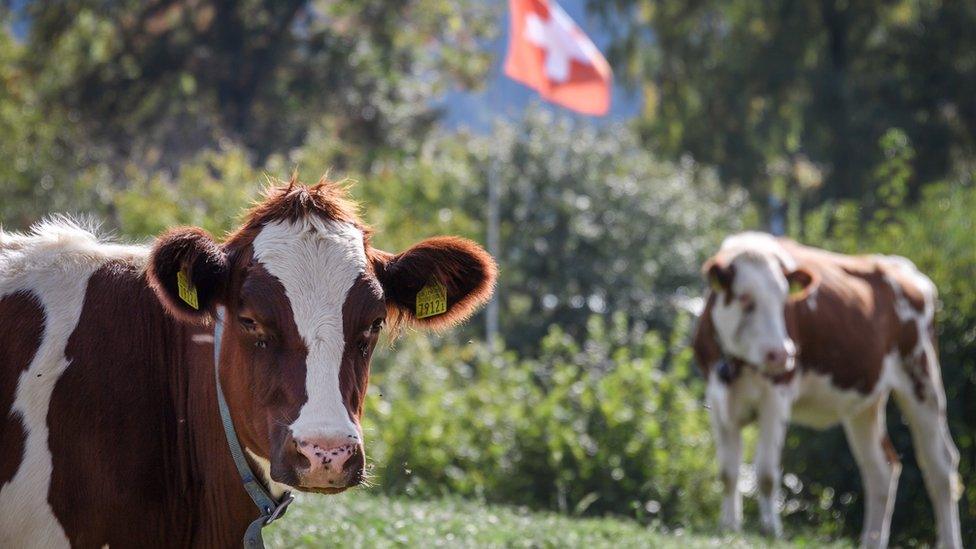
- Published16 May 2018

- Published24 January 2018
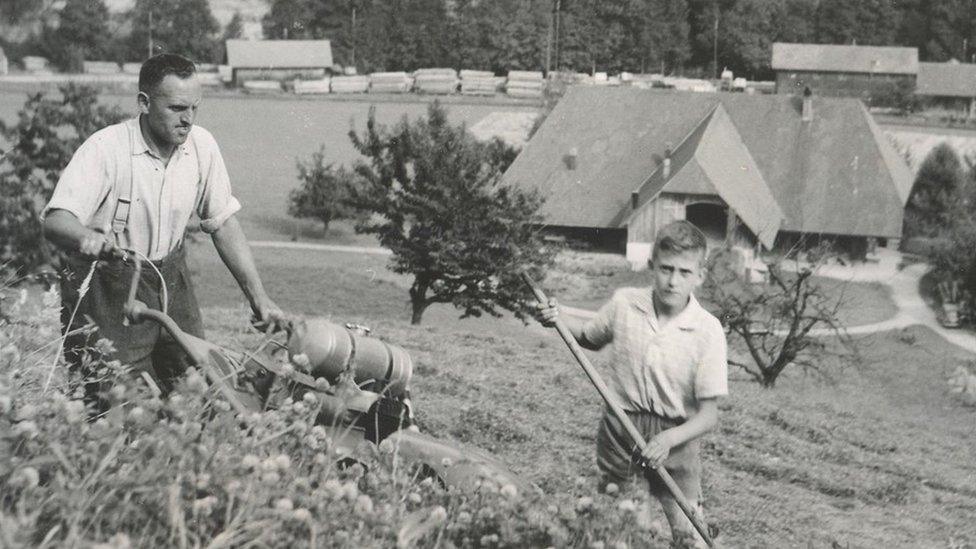
- Published5 December 2022